Nature Knows and Psionic Success
God provides
Blue light from digital devices causes eye strain and increased risk of macular degeneration

( Natural News ) A lot has been said about the dangers of mobile devices, but did you know that just looking at them can cause health problems ? Studies indicate that staring at the screen of digital devices, be it your laptop, desktop computer, or smartphone, could increase your risk for macular degeneration, the leading cause of blindness in the U.S. Digital screens emit what is called blue light. In order for you to grasp how it damages the eyes, you have to understand the nature of light itself. Visible light, also called white light, is actually composed of all the colors in the spectrum . On one end of the spectrum is red and on the other is violet – a visible representation of this is the rainbow. The closer the colors are to red, the longer their wavelengths are and the less energy they have. On the other hand, the colors closer to violet have shorter wavelengths but more energy. Blue light covers about a third of the visible spectrum, the part that includes everything from the colors blue to violet. Because of this, it is also known as blue-violet light. Blue light is comparable but weaker than ultraviolet (UV) radiation, the invisible rays beyond violet light. UV has so much energy that it has a direct effect on your body. Get enough of it and you’ll get a tan. Have too much of it and you’ll get a sunburn or worse – skin cancer. Exposing the eyes to UV light is known to increase your risk for cataracts . Digital screens emit small doses of blue light, but constant exposure to it (via you staring at your digital device for extended periods) cause eye strain and eventual damage to the tissues in your eyes. This […]
Stroke patients suffering from insomnia can find relief with acupuncture

( Natural News ) People suffering from insomnia after a stroke would do well to ditch their sleeping pills for acupuncture needles, according to experts. In a study, researchers from South Korea confirmed that stroke patients who suffer from insomnia can find relief from acupuncture , a traditional Chinese medicine. In fact, it’s even more effective than drug treatments. In their study, which was published in the journal BMC Complementary and Alternative Medicine , they assessed the effectiveness of acupuncture in relieving insomnia after stroke. One of the most reported complaints of people recovering from a stroke is insomnia. It is primarily caused by anxiety resulting from hyperactivity of the sympathetic nervous system. Meanwhile, acupuncture has been commonly used to treat various clinical conditions, especially those that involve pathological changes in neuroendocrinology such as insomnia. It can regulate the functioning of the heart and brain by stimulating certain acupoints on the body. Although acupuncture has increasingly been used to manage insomnia, its effectiveness in the treatment of insomnia after stroke has not been studied. Therefore, researchers at the Korea National Rehabilitation Research Institute in Korea assessed whether acupuncture is effective in relieving insomnia. In conducting the study, they reviewed a total of 13 studies that compared the effects of acupuncture to placebo or other conventional therapy, such as drug usage, for the treatment of insomnia after a stroke. Based on their meta-analysis, acupuncture was revealed to be more effective than drugs for treating insomnia after stroke, as acupuncture reduced insomnia after stroke. In addition, intradermal acupuncture caused significant improvements in insomnia after stroke compared to sham acupuncture. The power of the elements : Discover Colloidal Silver Mouthwash with quality, natural ingredients like Sangre de Drago sap, black walnut hulls, menthol crystals and more. Zero artificial sweeteners, colors or alcohol. […]
Acupuncture improves cognitive function of Alzheimer’s patients
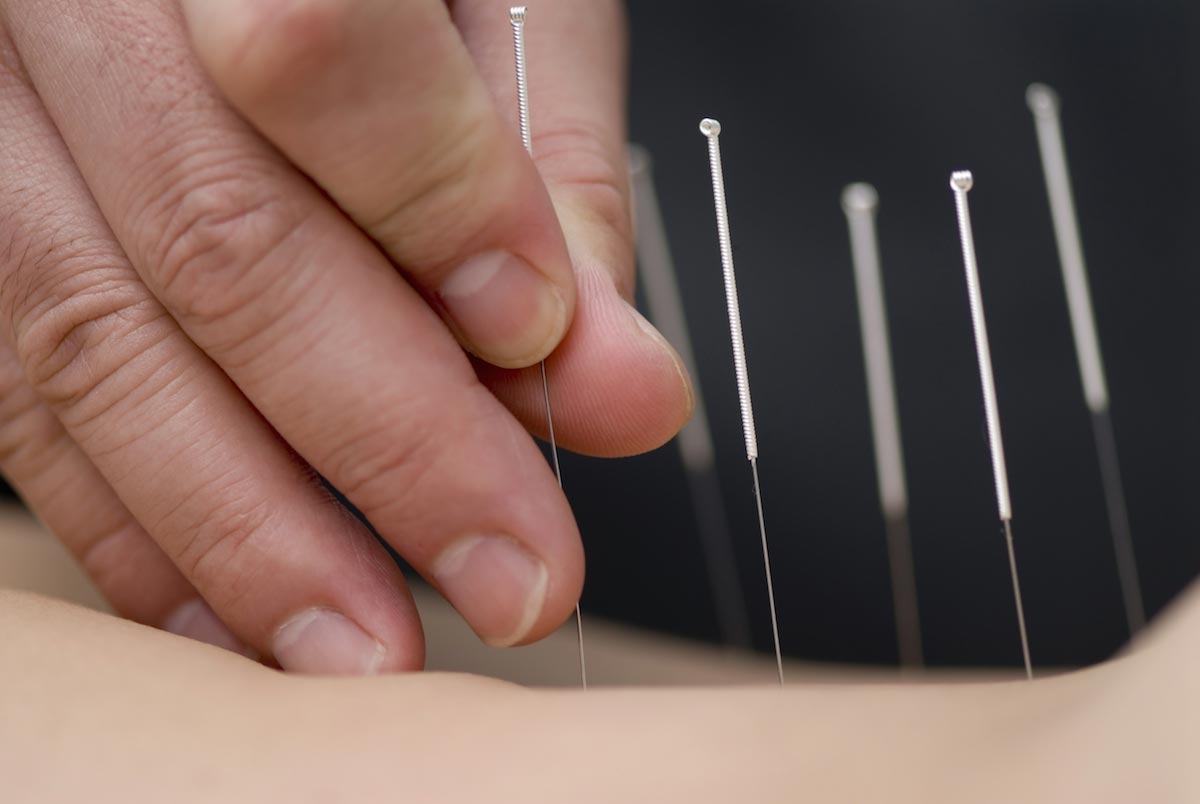
( Natural News ) Acupuncture has seen some use as a means of alleviating the effects of Alzheimer’s disease (AD) on the brain. However, recent systematic reviews have expressed some doubt on the effectiveness and safety of the traditional Chinese medicinal treatment. Therefore, a new study sought to confirm the findings of earlier researchers regarding acupuncture’s effect on AD. Alzheimer’s disease is the most common form of dementia . It takes time to progress, but it affects the memory, disables effective thinking, and even changes the personality of the patient. It becomes more likely to develop as one grows older. Currently, no means of stopping or reversing the effects of AD are available, and medicines like cholinesterase-inhibitors and memantine can only relieve the symptoms of the disease. However, these drugs are expensive and can cause adverse events that force an end to the treatment. There is, therefore, a need to find a cure that is safe, effective, and affordable for patients in developing countries. Traditional Chinese medicine has been used to improve the cognitive function of Alzheimer’s disease patients. Acupuncture, in particular, has often been used to amend the symptoms of the illness. However, an earlier systematic review of data believed there was insufficient convincing evidence that acupuncture did anything for the patient’s cognitive function. Another review suggested that the existing body of evidence failed to demonstrate the effectiveness of the traditional Chinese medicine treatment. In response to these reviews, researchers from Tianjin University of Traditional Chinese Medicine (TUTCM) launched a new trial to determine the effectiveness of acupuncture on people who have Alzheimer’s disease. The power of the elements : Discover Colloidal Silver Mouthwash with quality, natural ingredients like Sangre de Drago sap, black walnut hulls, menthol crystals and more. Zero artificial sweeteners, colors or alcohol. Learn more […]
Synapse Launches Natural Cognitive Boost
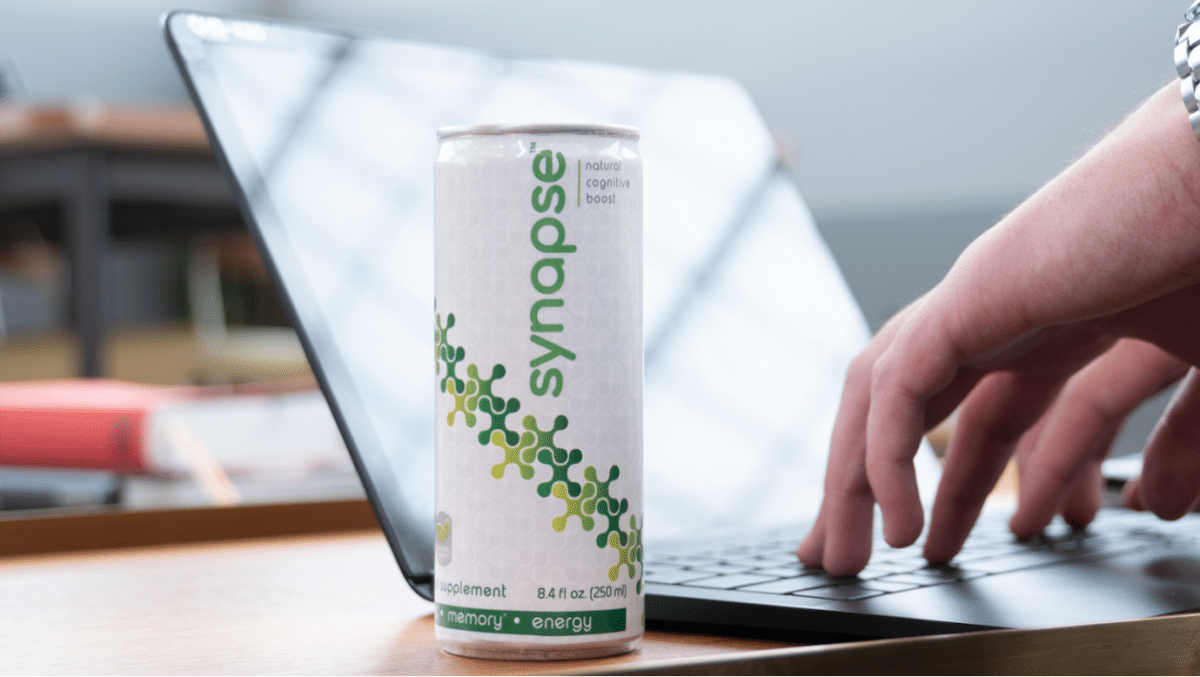
ATLANTA — Synapse, a natural, fast-acting and ready-to-drink supplement designed to boost mental performance and vitality by optimizing memory function, focus and mental clarity, announces its launch. Made with herbal ingredients used in centuries-old health and wellness practices and supported by a proprietary, cutting-edge support matrix, the nootropic supplement contains no caffeine, high fructose corn syrup or artificial flavors, colors and sweeteners. Synapse was founded by neuroscience scholar Daniel Porada, biomedical engineering student Charles Lankau and innovation and beverage industry leader Shouvik Ganguly. Daniel and Charles first met in 2014 during a summer medical internship at Wake Forest Innovations. That fall, they returned to their respective schools, Columbia University and Georgia Tech, where they noted the prevalence of excessive caffeine and energy drink consumption on campus. “Putting our neuroscience and biomedical engineering knowledge to use, we sought to leverage the body’s Krebs cycle––the basic biological process in which cells generate energy––to create a supplement that would give a boost without the health consequences tied to some energy drinks and caffeine,” said Co-founder Daniel Porada. “We began experimenting with ingredient blends to enhance the brain’s natural function through increased mental focus and vibrancy.” With the idea and formulation for the health-conscious energy alternative solidified, the co-founders were ready to take Synapse to market. They were accepted to Georgia Tech’s distinguished Create-X entrepreneurial initiative, which gives students the platform, knowledge and funding to launch start-ups. Through the program, they met Co-founder Shouvik Ganguly, who brings a long history in operations, marketing and commercialization from the global beverage industry. At The Coca-Cola Company for 18 years, he led brand management teams, ran category businesses and executed global launches. “We believe we’re pioneering the ready-to-drink nootropics category,” said Shouvik. “Consumers want healthier options, and Synapse addresses mental vitality and offers a unique, sustained […]
Reverse brain shrinkage with this ‘neuro-boosting’ combo
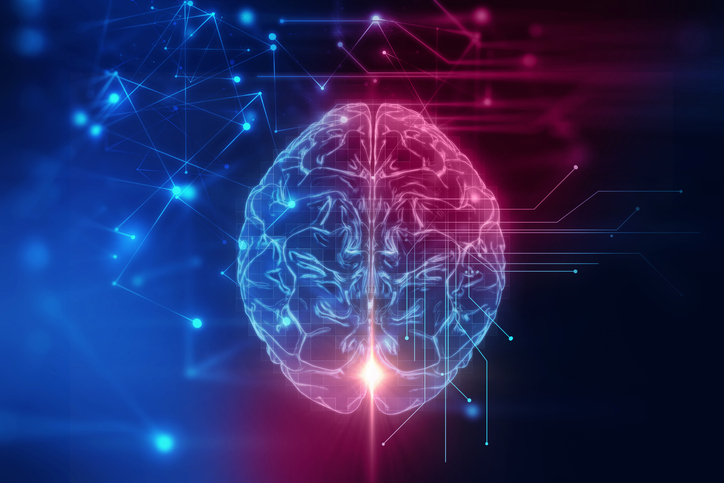
Give your aging brain superpowers with THIS It’s been summer blockbuster season at movie theaters across the country — and that means that our “silver screens” have been filled with stories about guys and gals who woke up as superheroes after taking a blow to the head or falling into a vat of nuclear waste. It’s nice to escape from reality for a couple of hours, especially when the stresses of “real life” begin to pile up. But it turns out that certain so-called “superpowers” aren’t fiction – not entirely, at least – because you can turn your aging brain into a “Super Brain.” And all it takes is one little action to make all the difference. To reclaim a mind that’s “young again,” you don’t have to be bitten by a magic spider or submit to some experimental treatment by a mad scientist. Because there’s one tiny pill that’s been shown to help your brain snap into action and help you feel like your old self again. It doesn’t require a prescription… but you won’t find it at your local pharmacy, either. I’m sure you’ve seen some “miracle memory fixes” floating around the internet. And you’re right to be skeptical. At first, I was too. After all, it sounds like science fiction. But the cold, hard scientific FACT is that your brain can reportedly shrink nearly 1 percent every year after the age of 60 — which is the cause of many of those “senior moments” that you may have already started experiencing. (As a 60-something myself, I’ve experienced my fair share of them as well.) And after years of research, my team and I have figured out a way to address brain shrinkage… and help keep your mind from slowing down. It’s a brand-new “smart pill” that’s […]
One more reason to take probiotics: They protect against liver damage
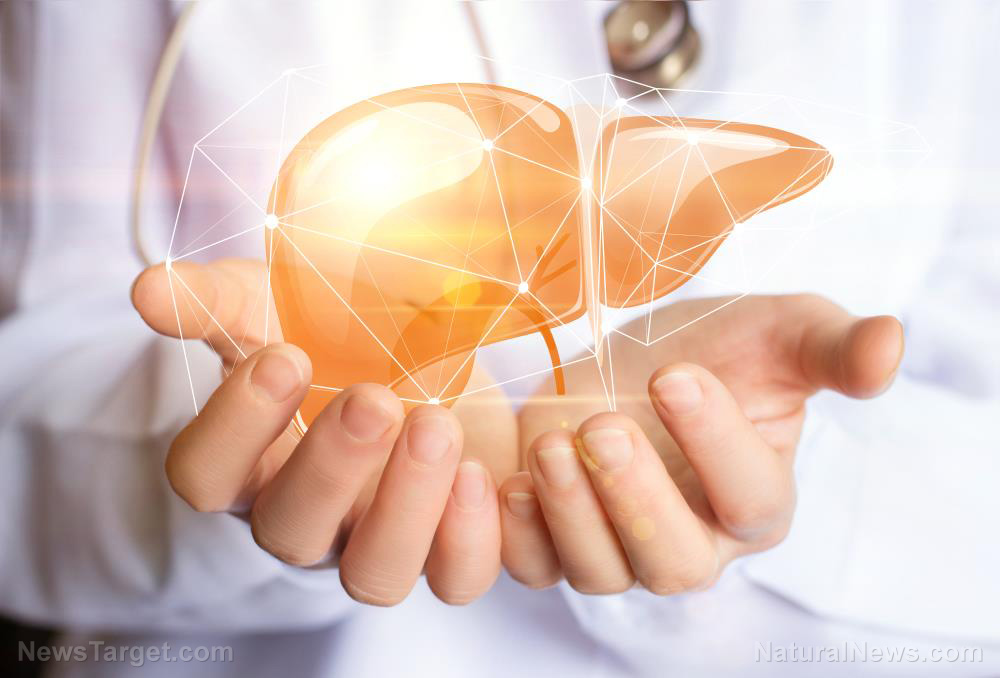
( Natural News ) Probiotics are known for supporting a healthy gastrointestinal tract and promoting good digestion, but new research has shown that these friendly microbes can benefit more than just your gut. It turns out probiotic bacteria can also help keep your liver in tip-top shape by protecting the vital organ against all kinds of damage — and may even help protect against nonalcoholic fatty liver disease. Recent research out of Emory University has highlighted some of the the system-wide benefits that can be achieved with probiotic supplementation. The study , led by Bejan Saeedi, a doctoral candidate at Emory, stated, “Probiotics have been studied most intensely in the context of the gastrointestinal tract. This study provides evidence that the effects of probiotics extend beyond the gastrointestinal tract. What makes this study unique is that it suggests a discreet molecular mechanism by which these effects are elicited.” Probiotics protect liver health To conduct the study, Saeedi and his team fed mice a diet supplemented with a specific strain of probiotic bacteria, known as Lactobacillus rhamnosus GG (LGG) for a two-week period. LGG is a common strain of bacteria used in probiotic supplements. After the supplementation period ended , the mice were given high doses of acetaminophen — the active ingredient in popular over-the-counter pain medication. Too much acetaminophen can lead to serious liver damage and even death. As Science Daily reports , acetaminophen increases the abundance of free radicals and oxidative stress in the liver, which is highly damaging. 100% organic essential oil sets now available for your home and personal care, including Rosemary, Oregano, Eucalyptus, Tea Tree, Clary Sage and more, all 100% organic and laboratory tested for safety. A multitude of uses, from stress reduction to topical first aid. See the complete listing here , and […]
Periodic fasting rapidly stimulates a multitude of healing processes

( Natural News ) When you think of starving, everything that comes to mind is likely negative – extreme hunger, weakness, and eventual death. However, periodic starvation is another story entirely as extensive research has shown that temporarily restricting your caloric intake can quickly stimulate several healing responses in the human body. National Institute on Aging Senior Scientist Dr. Mark Mattson has studied the effects of fasting and the diet in general on aging and healing for more than three decades. He told Psychology Today that periodic fasting can be very beneficial for the body. While eating supplies the body with nutrients, it also stimulates inflammation and oxidative stress that can damage your organs and accelerate aging over time. Therefore, refraining from eating or restricting certain kinds of food temporarily can reduce your risk of some chronic diseases and heal others. Of course, prolonged starvation isn’t the answer to anything, so Dr. Mattson emphasizes that striking the right balance between eating and not eating is essential for reaping the benefits of periodic fasting. Dr. Mattson and other brain researchers say that periodic fasting can enhance the biochemical and genetic factors associated with less disease, better health, and a longer life in general. In addition, you can boost your mental function and reduce your risk of diseases of aging such as heart disease, cancer, diabetes, and brain decline. A study carried out by researchers from the University of Southern California found that fasting for as few as three days has the power to regenerate a person’s entire immune system in a remarkable breakthrough that is even effective in elderly people. Immune cells wear out over time and stop performing at their optimal levels, and it was once believed that nothing could be done to make up for this beyond stem […]
How Spending Time Outdoors Can Boost Student Academic Potential

School is back, and with it come parents’ concerns for their child’s academic performance. Parents want what is best for their kids and, in order to ensure a successful future, they are constantly on the lookout for tools that can help them reach their full potential. However, parents often overlook the benefits that outdoor activities can have on a child’s mental and physical health. In fact, there are many ways in which the outdoors can be utilized as an easy and affordable tool to boost your child’s academic potential. BRAIN FUNCTIONING Today the majority of Americans, including children, spend most of their time indoors. Today’s children devote an average of seven minutes a day to unstructured outdoor play time. This means that they are not getting the health benefits of outdoor time in nature. In this new age of technology many parents struggle to convince kids to trade screen time for green time. Nonetheless, neglecting to spend enough time outside can affect your child’s Vitamin D levels and brain health. Vitamin D, also known as the sunshine vitamin , helps the body to absorb calcium, which is vital in the bone-building process. An individual with Vitamin D deficiency will struggle building and maintaining strong bones, fighting infections, and preventing the development of autoimmune diseases. Even though outdoor time alone might not be enough to reach the Vitamin D blood levels recommended for your kids, it will help, while also ensuring that they have more efficient brain and physiological functioning. SLEEP PATTERNS Lack of exposure to natural light during the day could also be contributing to your child’s inconsistent sleep patterns and therefore negatively affecting their academic performance. According to a Boston College study of 50 nations, American students were found to be the most sleep-deprived. This lack of sleep […]
Scientists discover that fermenting blueberries can restore cognitive function, improve memory for people with amnesia
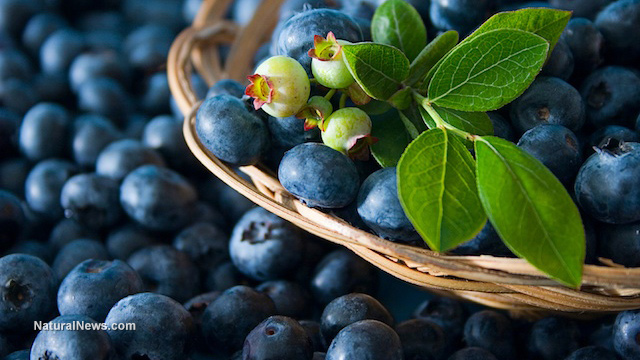
( Natural News ) Blueberry vinegar may help boost memory and restore the cognitive function of people with dementia , according to researchers from Konkuk University . In their study, which appeared in Science Daily , the team examined whether vinegar made from blueberries, which are rich with different active compounds, might help improve cognitive function and stop cognitive deterioration. As part of their study, Beong-Ou Lim and his team administered blueberry vinegar to mice with induced amnesia for seven days. After that, the team performed a behavioral assessment using behavior tests. The findings of the study revealed that the blueberry vinegar decreased the breakdown of acetylcholine and increased levels of a protein called brain-derived neurotrophic factor (BDNF) which plays a role in the maintenance and production of healthy nerve cells. The research team arrived at this conclusion after conducting in vivo studies to evaluate the mice’s performance in mazes and an avoidance test, wherein the mice would receive a low-intensity shock in one of two chambers. Results revealed that when fed with blueberry vinegar, the amnesia-induced mice showed better performance in both of the tests. This suggests that the blueberry vinegar, which is a fermented product, boosted short-term memory. With the results, the researchers believe that blueberry vinegar has the potential to help treat amnesia and cognitive deterioration among older people. The research built on past studies that showed the relationship of the signaling compound acetylcholine and cognitive function. Acetylcholine is a key neurotransmitter that is responsible for memory, thinking, concentration, and focus . It can be obtained by consuming dietary sources of choline, such as eggs, animal proteins, seafood, dairy, and plant sources like soybeans, nuts, and seeds. Mother Nature’s micronutrient secret : Organic Broccoli Sprout Capsules now available, delivering 280mg of high-density nutrition, including the extraordinary […]
5 Proven Natural Ways To Boost Your Body’s Dopamine Production

Dopamine is a crucial chemical transmitter in the brain that performs a lot of operations. Dopamine is a neurotransmitter—a chemical that helps brain cells communicate with one another. It plays a crucial role in motivation, reward, memory, attention and even in the control of the movement of the body. High levels and low levels of dopamine On the one hand, when our body releases dopamine in large amounts, it makes us feel happy and acknowledged, which motivates us to repeat a particular model of behavior. On the other hand, low levels of dopamine are the reason for the lack of motivation and enthusiasm for different things. Usually, dopamine levels are appropriately regulated in the nervous system, but there are some tricks to increase them naturally. Here are 5 natural proven ways to boost dopamine levels: Big goals are important. They give us a purpose to work towards. But small goals are significant, as well because. They are inherently short-term, which is very useful when trying to do bigger tasks. Breaking them up into smaller pieces helps you stay motivated and confident throughout the process. And motivation is the first and foremost element of success. If don’t have a motivation, we could fail. Haven’t we all been through this at least? It is when we achieve even small success when our brains release dopamine. As mentioned above dopamine is related to the feelings of pleasure, learning, and motivation. And when we feel its effects, we’re eager to repeat (as previously explained) the actions that lead to success. Neuroscientists named this process “self-directed learning.” This is why achieving small goals is a very effective method to stay motivated in the long term. For example, checking items off of a checklist can help us stay motivated. This action releases small quantities of […]
Surprising Way to Boost Your Memory
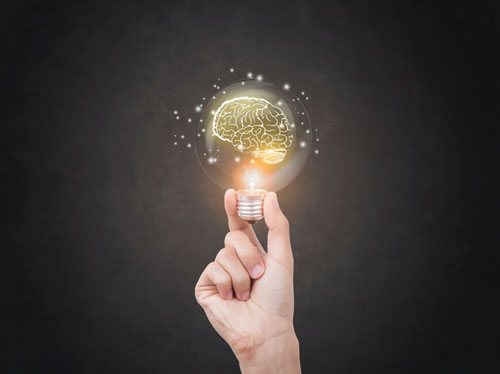
Some of us like to work in a dimly lit room so we can concentrate. We might even close our eyes to focus ourselves mentally. A darkened environment just seems to lend itself to blocking out distractions. But surprising new research finds that doing this is not only unhelpful, it actually damages your ability to absorb and remember new information.1 Bright Light, Bright Mind In a study funded by the National Institutes of Health, neuroscientists at Michigan State University trained Nile grass rats to perform a simple task. Then they divided the animals into two groups. One was exposed to bright light. The other was kept in dimly lit conditions. Unlike most other types of rats, Nile grass rats are diurnal. They sleep at night and are active during daytime…like humans.2 After four weeks, the researchers tested the rodents in the task they previously had been taught. The rats kept in dim light had lost 30% capacity in the hippocampus. This is a region of the brain that is important for memory and learning. On the other hand, rats exposed to bright light did significantly better performing the task than they had originally. After a four-week break, researchers switched the groups. They exposed the dim-light group to bright light for four weeks. The rats’ brains recovered fully. And they did better performing the task. This study is the first to show that changes in lighting can cause structural changes in the brain. Don’t Keep Yourself in the Dark Professor Antonio Nunez was the study’s co-investigator. “When we exposed the rats to dim light, mimicking the cloudy days of Midwestern winters…the animals showed impairments in spatial learning,” he said. Joel Soler is a doctoral graduate student in psychology at Michigan State. He was lead author of the study. Soler explained […]
How much physical exercise you do now will affect the learning ability of your future children

( Natural News ) Our looks, intelligence quotient, and personality disposition are not the only things we inherit from our parents. A recent study shows that we get our capacity to learn from them as well. A recent study by Prof. André Fischer and his team from the German Center for Neurodegenerative Diseases (DZNE) in Goettingen and Munich and the University Medical Center Goettingen (UMG) showed a connection between physical and mental exercise, on the one hand, and the ability to bear children who learn better on the other. When Fischer and his colleagues exposed mice to a stimulating environment which gave them the chance to exercise a lot, their offspring also benefited. The mice scored better on tests that measured learning ability. The rodents also had improved synaptic plasticity in the hippocampus, an area of the brain that is essential to learning. Synaptic plasticity shows how well nerve cells interact with each other and form the cellular basis for learning. The researchers then analyzed the mechanism which accounts for this behavior. They extracted RNA (Ribonucleic Acid, which plays a role in gene activity) from the sperm of physically and mentally active mice. The RNA molecules were injected into fertilized egg cells. The same benefits were seen in the mice that developed. They had better synaptic plasticity and learning abilities. This ability of parents to pass on their experiences, like physical and mental behavior to their children, is called epigenetic inheritance . RNA mediates epigenetic inheritance. Epigenetic inheritance is at work when a pregnant woman who consumes an unhealthy diet gives birth to a sickly baby. It’s also seen when babies of happy mothers smile and laugh more often. This is why expectant mothers are urged to eat healthy foods and avoid negative feelings. Mother Nature’s micronutrient secret : […]
They’re taking over sports, too? New AI robot can shoot better than professional basketball players
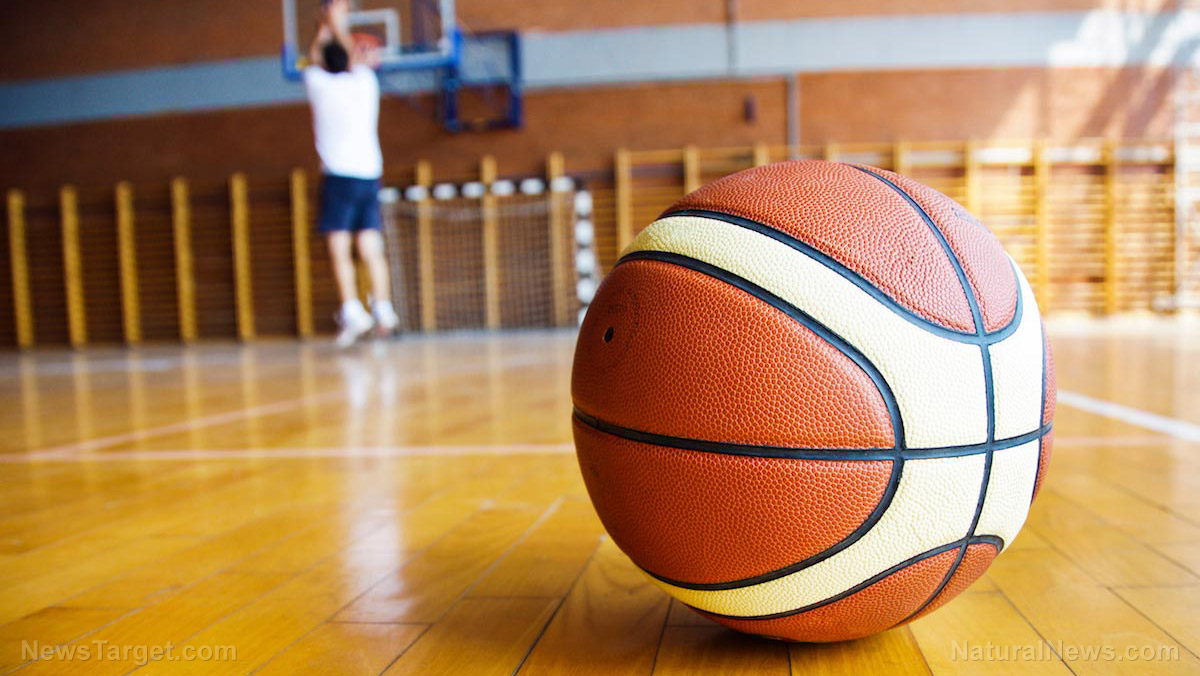
( Natural News ) Toyota employees loved a basketball manga character so much, they built a basketball-shooting robot from scratch. While it can’t move, it hits nothing but net from the free throw line, reported a NewsWeek article . Japanese newspaper Asahi Shumbun identified the humanoid robot as CUE. Its artificial intelligence allowed it to pick up and polish certain basic basketball skills better than Tim Duncan ever did. CUE made its “debut” in the B League 1, wearing the jersey and shorts of local basketball team Arvalq Tokyo. Photos and videos show that it can hold the ball, squat, and fire off a shot much like a human player does. The robot proceeded to embarrass Japanese pro basketball players by making all of his free throw shots count while its two competitors could only manage eight out of their 10 combined shots. To give non-afficionados of the sport an idea of how accurate this thing is, Georgia native Isaac Butts leads the Japanese league with a 65.7 shooting percentage. His NBA equivalent, Clint Capela of the Houston Rockets, nails around 65.5 percent of his shots. Without defenders or distractions hampering their shots, CUE’s human opponents managed 80 percent. The robot scored 100 percent. “I cannot help it,” one of the players remarked about CUE’s hideously accurate shooting. (Related: Security robot that can spot suspicious individuals now being used at Dubai airport .) The ultimate basketball shooting machine CUE is the latest in a growing number of AI-driven robots intruding into sports . Other robots rolled out in recent years were able to ski, kick soccer balls, or even box. Support our mission and enhance your own self-reliance : The laboratory-verified Organic Emergency Survival Bucket provides certified organic, high-nutrition storable food for emergency preparedness. Completely free of corn syrup, […]
Molecular hydrogen dramatically reduces oxidative stress in your body
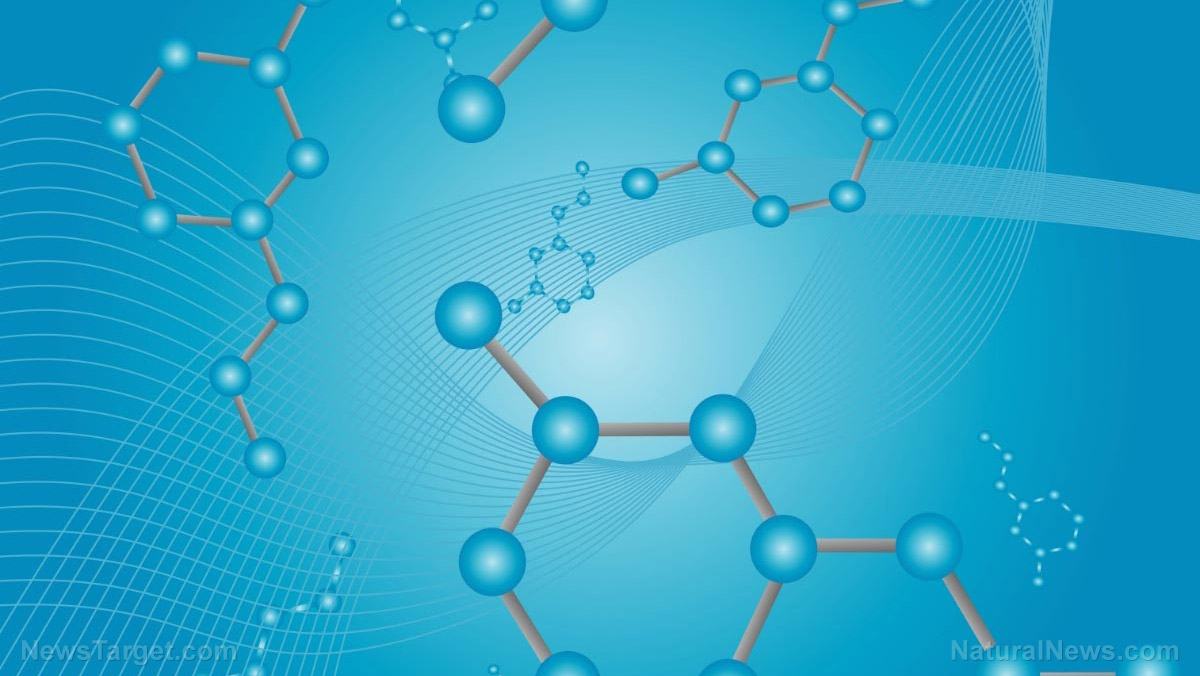
( Natural News ) Could one of the most prevalent molecules on our planet prove to be one of the most powerful healers of our time? While researchers investigate rare botanicals tucked away in remote corners of the planet and scientists try to engineer increasingly sophisticated treatments, the answer to many health problems might have been right under our noses all along. Hydrogen is everywhere, whether you realize it or not, and its abundance is good news for all of us if it turns out to be as beneficial as initial studies indicate. As the original element, hydrogen is very reactive. One atom bonds easily with another to create molecular hydrogen, or H2 gas. Research has shown that this odorless, tasteless gas can reduce oxidative stress , which is believed to be the root of nine out of ten modern diseases. Molecular hydrogen therapy was first introduced more than two centuries ago. Since a 2007 study published in Nature Medicine demonstrated its excellent antioxidant qualities, hundreds more studies have confirmed and expanded on that finding. Free radicals don’t just come from environmental toxins; they’re also created by your body’s own natural functions, like exercising and even inhaling. When free radicals interact with molecules in the body, they cause oxidative damage to the membranes of cells, facilitating aging and leading to problems like cancer, heart disease, and diabetes. Hydrogen’s small size enables it to get inside of cell mitochondria easily, which could explain why it can be so beneficial. It diffuses quickly into your body’s cells and tissues, where it fights these dangerous free radicals and oxidative stress. Best of all, it does this safely ; the only byproduct left behind is water. The power of the elements : Discover Colloidal Silver Mouthwash with quality, natural ingredients like Sangre de […]
How to Train Your Brain to Crave Lifelong Learning (And Why It’s Good)

I am in love with lifelong learning . It was not always that way, however. To be perfectly honest, I used to think that the only way to learn was in school. And I was not always a big fan of “conventional learning”, unless it was a course that really interested me. It was not until I expanded my own definition of learning that the love affair began. The retreats, the books, the conferences, and even my own missteps. All a means for learning. Now I cannot learn enough or get my hands on enough information. Lifelong learning is like a potato chip to me; I want more. As a matter of fact, as of the writing of this article, I have about 12 different books going at the same time. Why? Simple. It sparks my curiosity and the curiosity sparks my quest to be a lifelong learner. “Curiosity is one of the permanent and certain characteristics of a vigorous intellect.” ― Samuel Johnson The more I engage and employ lifelong learning, the more I experience some really cool things. Not only lifelong learning improved my brain functions (like my memory), but it has supported my success and growth as a business owner and made me a more effective coach. Not to mention, as an introvert, it gives me a lot of material to work with in social settings, which is a great side benefit. The bottom line: lifelong learning has been truly instrumental in adding new tools and knowledge to my metaphorical toolbox. Major benefits of lifelong learning If you think about it, the brain, while mostly grey matter has muscle. Like any muscle or skill, the less you use it the more chance for it to atrophy. But keeping your brain strong is not the only benefit. […]
25 Brain-Boosting Foods That Will Keep You Sharp

Healthy Eating Celery It’s time to stop skipping celery because it tastes like, well, nothing. Because what celery lacks in taste it more than makes up for in brain power! It’s a rich source of luteolin, a plant compound believed to reduce inflammation in the brain, thereby protecting it from the aging process. A 2010 study found that luteolin slowed cognitive decline in older mice. You don’t have to chomp down a huge stick of celery to reap it’s benefits: Try chopping some up and adding it to your tuna salad, or tossing a bunch into the next soup you make. Try these mouthwatering recipes for an extra boost in brain power . These are the best brain foods that will make you smarter . Dark chocolate Great news for dark chocolate lovers! Several studies demonstrate its brain-boosting powers, including enhanced cognitive function, a reduced risk of dementia, and improved performance on challenging brain teasers—along with a slew of other health benefits of dark chocolate. For example, researchers in 2013 found that the flavanols that get absorbed when you consume chocolate penetrate and accumulate in the brain regions involved in learning and memory, especially the hippocampus. Another test, carried out in 2011 , found that even single doses of high-flavanol dark chocolate can improve performance on cognitive tests, including memory test, in healthy adults. Chocolate has even been found to improve depression and anxiety symptoms and help enhance feelings of calmness and contentedness, thanks to its mood-enhancing flavanols and methylxanthines. Walnuts All nuts are good for brain health, but walnuts are at the top of the list. Thanks to their high concentration of DHA, a type of omega-3 fatty acid (one quarter cup of walnuts provides almost 100 percent of the recommended daily intake of DHA ), the nuts […]
How to save your brain in 2 minutes

Like a lot of people these days, a large part of my day is spent at a computer. I research new scientific studies, I write these articles, I handle email and bills and the hundreds of other little things that make up my work and my life. And then at night, I head home ready to relax with my family – which more often than not means vegging on the couch watching our favorite shows. Then it’s off to bed to do it all over again. This might sound familiar to you too since it’s estimated that most people spend an average of 12 hours sitting down each and every day… And, if you think about it, you spend about eight hours sleeping, leaving only four hours a day that you’re actually up and about. While most of us realize that all of this sitting can be a problem when it comes to losing weight or even keeping our hearts healthy, there’s one area of your health that sitting may have an even bigger impact… Your brain health. Oxygen and nutrients to feed a starving brain You see, when you’re sitting, your muscles don’t contract as much, your heart doesn’t beat as fast and your blood doesn’t pump as quickly. All of this adds up to less oxygen and nutrients flowing to your brain – things your brain needs in order to stay sharp, help you focus and preserve your memory and cognitive function as you age. In fact, scientists say that the type of reduced blood flow to your brain that you get from sitting too much can dramatically raise your risk of neurodegenerative diseases, like Alzheimer’s. But, there is something you can do about it… A simple solution that boosts the blood flow, oxygen levels and nutrients […]
The mental health benefits of vitamin B12
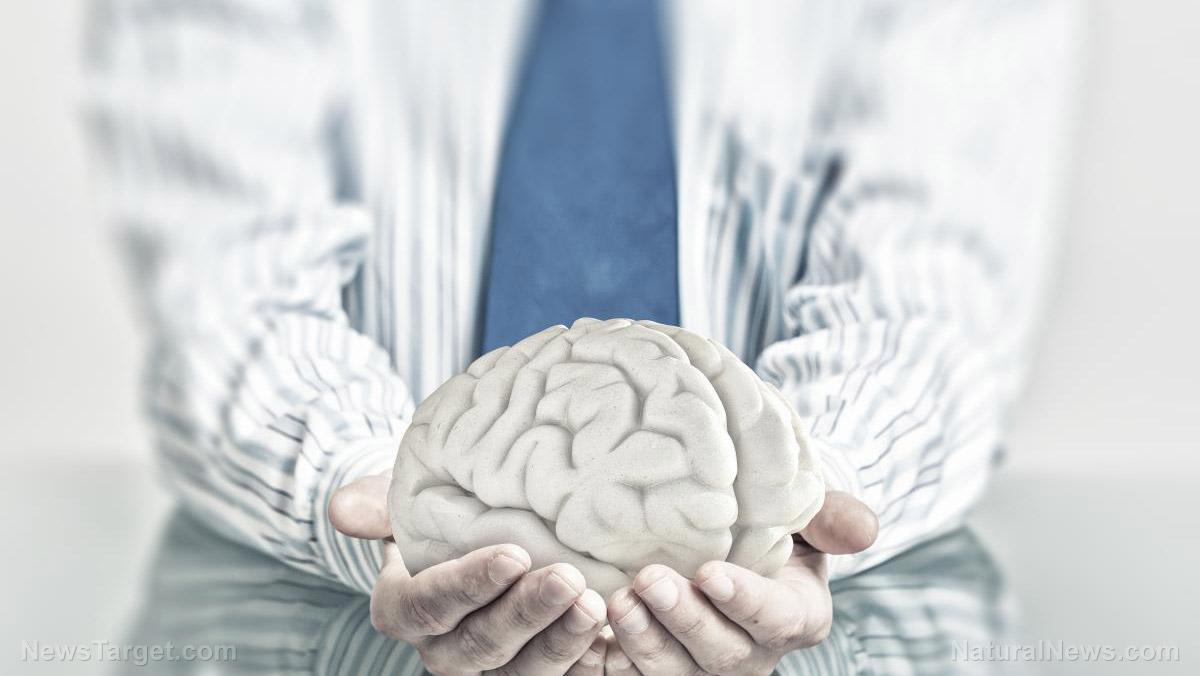
( Natural News ) As it controls virtually all aspects of your life, the brain is one of the most vital organs of your body. It is also one of the most nutritionally demanding. Keeping the brain healthy requires a wide variety of minerals, antioxidants, and vitamins, one of the most notable of which is vitamin B12 . Cobalamin, known more popularly as vitamin B12, is one of the eight B-vitamins. These nutrients are known as a collective whole for helping the body to absorb energy, but individually, they perform distinct functions and benefit specific parts of the body. Cobalamin, for instance, helps keep your bones strong and your eyes healthy. But where vitamin B12 truly shines is in maintaining proper brain function. It is linked to processes related to memory and concentration. It is also an important requirement in the formation of serotonin and dopamine, neurotransmitters vital to the regulation of moods. In fact, low levels of cobalamin have been associated with depression. Furthermore, reduced levels of vitamin B12 are linked to symptoms of schizophrenia. These include social withdrawal, the inability to express emotions, and apathy. Some experts believe patients suffering from these symptoms need to monitor their vitamin B12 levels for the rest of their life. Another proof of cobalamin’s important role in brain function is how a lack of it can lead to symptoms akin to those suffered by people with Alzheimer’s disease. Once the deficiency is addressed and the patient is administered sufficient vitamin B12, the symptoms dissipate. Interestingly, there is evidence that supplementing with cobalamin and other B-vitamins can reduce the impact and symptoms of Alzheimer’s disease and dementia in general. One study from Oxford University found that the combination of cobalamin, pyridoxine (B6), and folic acid (B9) can improve brain function. This cocktail […]
Sen. Mark Warner: “Congress will have to set social media regulations” … says the “era of the Wild West in social media” is over

( Natural News ) Total censorship of the internet is headed our way — and Senator Mark Warner (D-VA) is driving the bus. Warner, the vice chairman of the Senate Intelligence Committee, has drafted up a 20-point plan for full-blown government seizure of the Internet of Things. The Left is launching an all-out war on American freedom by instituting policies that echo those seen in Communist China, where the internet and journalism are strictly controlled and tightly monitored. The IoT is ultimately a public platform, no different than a town square or other public space — and therefore, should not be subject to censorship. The left-wing is set on trampling all over the First Amendment rights of American citizens — and Warner has just written up a 23-page piece of legislation to get the ball rolling. If they don’t like what you have to say, Democrats want to take away your right to say it. Legislative attack on free speech begins On Capitol Hill, Warner and his political cohorts grilled Silicon Valley leaders over the vulnerabilities of a free, unregulated IoT. Warner contended, “The era of the Wild West in social media is coming to an end, where we go from here, though, is an open question.” According to him, it’s time for Congress to butt in. The answer to the question of regulating the IoT is not censorship — at least not in the United States. Regulating the internet will, ultimately, lead to the regulation of the free press. And when government regulates speech, it is no longer “free.” Under the poorly fitted guise of “public good,” leftists like Warner propose that the government can “protect” the public from dangerous thoughts by regulating the IoT, and instituting pathways for government to “educate” people on “media literacy” and for […]
The best supplements to boost brain power, while preventing diseases
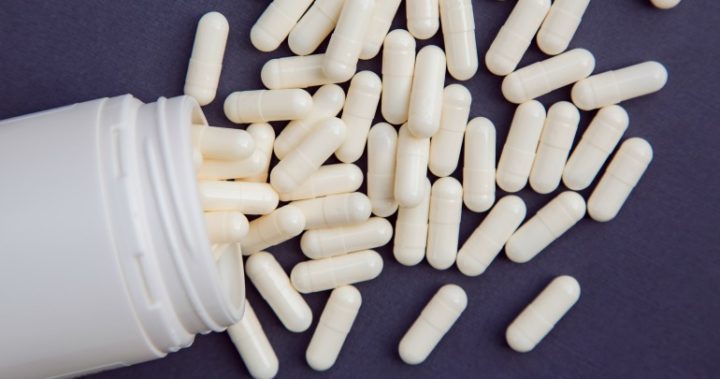
Keep your brain sharp with these brain-boosting supplements. Source: Getty Choosing the right supplements for brain health can help improve your mood, concentration, memory and even prevent some diseases. Now, speaking to Starts at 60 , American dietician Lulu Cook has explained that research proves some supplements such as omega-3 fatty acids, vitamins and minerals can actually provide energy and help prevent brain diseases. Omega-3 Health experts have lauded the health benefits of omega-3 fats for years, and fish oil is one of the most widely used supplements in the world. Omega-3 fatty acids help promote memory and cognition, Lulu said, adding: “No surprise, given that omega-3 fats are the building blocks of our brain cells, and also play key roles in reducing inflammation.” Alternatively, omega-3 oils in fish such as tuna, salmon, mackerel, sardine, trout and snapper are ideal. “[But] choosing a high-quality nutritional supplement can help ensure you’re getting enough of these beneficial fats,” she added. Vitamin B12 Vitamin B12, crucial for cognition and cellular metabolism, is reduced in older adults, Lulu explained, adding: “In fact, studies that [sic] that elders who do not get enough are at increased risk of dementia.” It acts as a powerful antioxidant, reducing both cellular and DNA damage, as well as inflammation. The mineral is also found in red meats, poultry, beans and nuts. “It’s possible to consume too much zinc, though, so be sure to check with a qualified dietitian or knowledgeable GP about whether supplementing may be right for you,” Lulu advised. Probiotics “The research linking gut health and cognitive health continues to make headlines around the world,” Lulu said. She explained there’s a two-way communication channel between the brain and gut called the ‘vagus nerve’, adding: “If we want the messages going both ways to support brain health, […]
